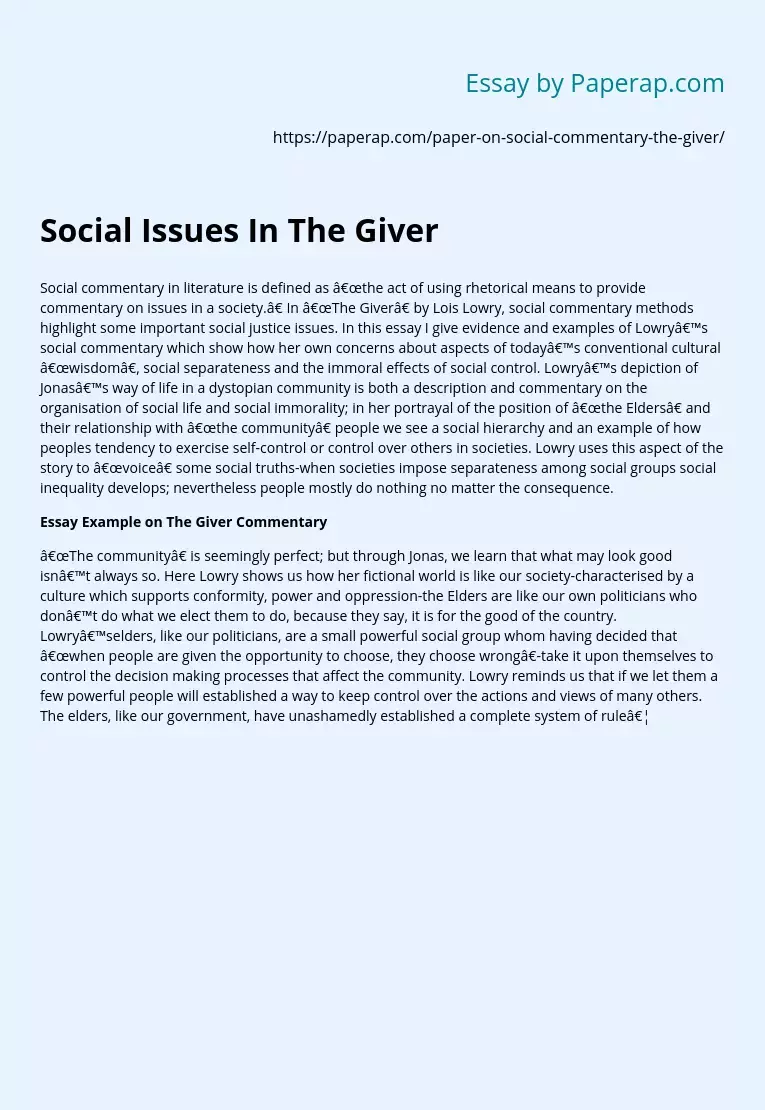Social Issues In The Giver
Social commentary in literature is defined as “the act of using rhetorical means to provide commentary on issues in a society.” In “The Giver” by Lois Lowry, social commentary methods highlight some important social justice issues. In this essay I give evidence and examples of Lowry’s social commentary which show how her own concerns about aspects of today’s conventional cultural “wisdom”, social separateness and the immoral effects of social control. Lowry’s depiction of Jonas’s way of life in a dystopian community is both a description and commentary on the organisation of social life and social immorality; in her portrayal of the position of “the Elders” and their relationship with “the community” people we see a social hierarchy and an example of how peoples tendency to exercise self-control or control over others in societies.
Lowry uses this aspect of the story to “voice” some social truths-when societies impose separateness among social groups social inequality develops; nevertheless people mostly do nothing no matter the consequence.
Essay Example on The Giver Commentary
“The community” is seemingly perfect; but through Jonas, we learn that what may look good isn’t always so. Here Lowry shows us how her fictional world is like our society-characterised by a culture which supports conformity, power and oppression-the Elders are like our own politicians who don’t do what we elect them to do, because they say, it is for the good of the country. Lowry’selders, like our politicians, are a small powerful social group whom having decided that “when people are given the opportunity to choose, they choose wrong”-take it upon themselves to control the decision making processes that affect the community.
Lowry reminds us that if we let them a few powerful people will established a way to keep control over the actions and views of many others. The elders, like our government, have unashamedly established a complete system of rule…
Social Issues In The Giver. (2019, Nov 27). Retrieved from https://paperap.com/paper-on-social-commentary-the-giver/

